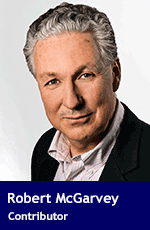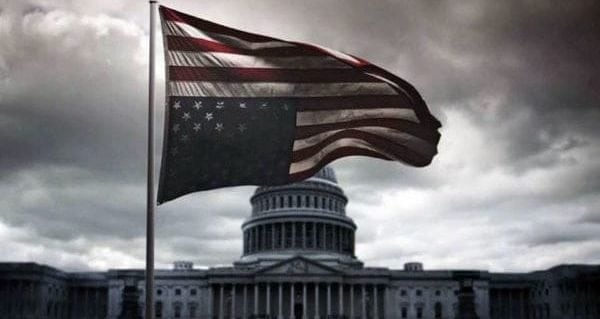 According to the Washington Post, Donald Trump’s lawyers argue that the American president should not be investigated (and cannot be prosecuted) for obstruction of justice because he holds complete control over federal investigations.
According to the Washington Post, Donald Trump’s lawyers argue that the American president should not be investigated (and cannot be prosecuted) for obstruction of justice because he holds complete control over federal investigations.
As the nation’s chief law enforcement officer, the lawyers argue, Trump could “even exercise his power to pardon if so desired,” including, presumably, pardoning himself.
In other words, a U.S. president is so powerful that he or she is essentially above the law. If that’s the case, is the United States president a king?
There couldn’t be a more unAmerican idea.
The United States was born a republic. Perhaps its most revolutionary message was the idea that the people and not a monarch are sovereign.
Why is this distinction important?
Because sovereigns make the law and, depending upon where sovereignty lies in a society, there lies the source of legal authority.
The American founders took great pride in the separation of powers they created. They deliberately structured their republic to prevent concentrations of power in the president’s office.
It was a novel idea. In the rest of the world, kings and emperors were the norm, and these absolute monarchs were not only above the law, their word was law.
Perhaps the clearest statement of a leader’s legal absolutism is embodied in the ancient Divine Right of Kings. In the 17th century, England King James I argued that the law “proceeds from the king as the divinely instituted lawgiver of his people.”
In arguing for presidential immunity, Trump is implying that the office of the president is similarly above the law and that the president’s will is (and should be) law.
Trump’s arguments for presidential absolutism are not popular or agreed upon, at least in constitutional law or in Anglo-Saxon history. The challenge to Trump’s definition of legal absolutism goes back centuries, right back to Magna Carta, in fact.
Magna Carta was a hastily prepared and rather strained agreement between King John of England and his uppity barons. It was signed in 1215.
Trouble had been brewing between the king and the nobility (both lay and religious) since the Norman invasion in 1066. In this pre-democratic world, Magna Carta set an important precedent by checking the seemingly inexorable centralization of monarchical power.
At first, in theory and then in practice, this unique document established rights and entitlements for the nobility that were inalienable. They were (or were supposed to be) above and beyond the authority of the monarch to override.
In setting this precedent, Magna Carta established an important principle of liberty: individuals’ rights and the laws that supported them were not dependent upon a leader’s largesse. The rule of law was supreme, and – more importantly – the legal process presupposed an equality in law between the parties, even socially unequal parties like peasants or presidents.
In other words, leaders were not absolute. They, like everyone else, were subject to and not above the law.
Magna Carta basically laid the groundwork for the evolution of democracy and, eventually, an expanding idea of human rights.
Less obviously, with this important principle in place, capitalism gained a critical bridgehead in the Anglo-Saxon world. Slowly, over many centuries, rights of property, and eventually other human, social and individual rights, became solid enough to withstand sudden changes in the political landscape.
So, Trump’s delusion is not trivial. His assault on the U.S. constitution and its founding principles (which he swore to uphold) could unravel centuries of progress. And this is only the latest in a series of wacky exploits that include blowing up the North American Free Trade Agreement (NAFTA), undermining the World Trading Organization (WTO), and threatening U.S. withdrawal from NATO. Each move tears at the fabric of the free world.
If you didn’t know better, it might be possible to imagine (in retrospect) that the Trump presidency was a carefully laid plot to subvert the western world.
It’s the kind of strategic long-term planning against western interests that might just be the product of a paranoid Russian president, someone like Vladimir Putin for instance.
Mind you, as unlikely as it sounds, according to Trump even if that were the case and he was deliberately undermining the nation, the president is untouchable. In his world, the president is not a servant of the state – he is the state.
And naturally, according to his perverted logic, it’s not possible for a president to be convicted of destroying himself.
Robert McGarvey is an economic historian and former managing director of Merlin Consulting, a London, U.K.-based consulting firm. Robert’s most recent book is Futuromics: A Guide to Thriving in Capitalism’s Third Wave.
Robert is a Troy Media Thought Leader. Why aren’t you?
For interview requests, click here. You must be a Troy Media Marketplace media subscriber to access our Sourcebook.
The views, opinions and positions expressed by columnists and contributors are the author’s alone. They do not inherently or expressly reflect the views, opinions and/or positions of our publication.

